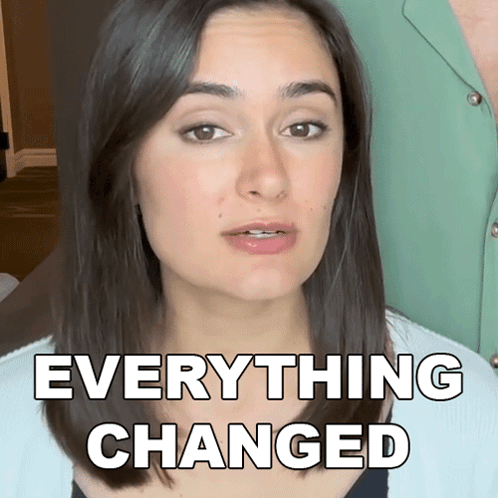That awkward moment when you bow before a powerful foreign official—only to discover years later he's the brother you sold into slavery! In Genesis 42, Joseph's siblings unknowingly fulfill the dreams that made them hate him, traveling to Egypt desperate for grain during a devastating famine.
Meanwhile, Joseph recognizes them instantly but plays a masterful chess game of concealed identity, accusation, and manipulation. He's not being petty; he's orchestrating a profound reconciliation process that will heal his family's deepest wounds. This isn't just a dramatic family reunion—it's a blueprint for how God orchestrates redemption through circumstances we never see coming.
The Psychology of Divine Payback
Genesis 42 unfolds with the precision of a psychological thriller. "When Jacob learned that there was grain in Egypt, he said to his sons, 'Why do you just keep looking at each other?'" This frustrated father's question sets everything in motion. What follows reveals the intricate dance of divine justice:
Famine drives → Brothers journey → Unrecognized Joseph tests → Hidden guilt surfaces → God's providence revealed
This isn't just plot development – it's exposing something profound about how God works in human hearts. Twenty years after their crime, Joseph's brothers still carry the invisible weight of their sin. Each interaction with this "Egyptian official" mysteriously triggers their buried guilt. God orchestrates not just physical circumstances (the famine) but psychological confrontations that bring hidden things to light.
The Brothers' Journey: A Timeline
Phase 1: Desperation (verses 1-5) Jacob's family faces starvation, forcing the brothers to travel to Egypt
Phase 2: Unrecognized Encounter (verses 6-17) The brothers bow before Joseph (fulfilling his dreams) Joseph recognizes them but conceals his identity He accuses them of being spies and imprisons them
Phase 3: The Test Begins (verses 18-24) Joseph adjusts his demand: one brother stays imprisoned while others return with Benjamin The brothers immediately connect their trouble to their guilt over Joseph Joseph overhears and weeps privately
Phase 4: Return Journey (verses 25-38) Joseph secretly returns their money in their sacks The brothers discover this and fear grows Jacob refuses to let Benjamin go
But here's what's fascinating – notice the emotional journey? The brothers move from practical concerns about hunger to confronting their long-buried guilt. Joseph moves from apparent harshness to private weeping. Invisible to all participants is God's hand, weaving their choices into a redemptive masterpiece.
SOUL SPOTLIGHT: Unprocessed Guilt
"They said to one another, 'Surely we are being punished because of our brother. We saw how distressed he was when he pleaded with us for his life, but we would not listen; that's why this distress has come on us.'" (Genesis 42:21)
This confession reveals the brothers had carried their guilt for over 20 years! They immediately interpreted their current trouble as punishment for their past sin. Their words reveal three haunting memories:
Joseph's distress
His pleading
Their refusal to listen
What guilt are you carrying? What past actions come rushing back when you face trouble? Genesis 42 reveals how unprocessed guilt shapes our interpretation of events and remains spiritually active even decades later.
The Architect of Redemption
When Joseph implements his plan—keeping Simeon, demanding Benjamin, secretly returning money—he's not being vindictive. He's creating a crucible that will transform his family. Each element of his strategy forces his brothers to confront their past actions, prioritize their youngest brother's safety (unlike what they did to Joseph), and reckon with their father's grief.
This reveals something profound about spiritual transformation. Sometimes the path to healing isn't comfortable acknowledgment but engineered crisis that brings buried issues to the surface. Joseph creates artificial pressure that exposes real character, just as God often allows circumstances that reveal what's truly in our hearts.
BETWEEN THE LINES: The Silent Treatment
Did you notice that Joseph needed an interpreter to communicate with his brothers (v.23)? This detail serves multiple purposes:
It maintains his disguise as an Egyptian official
It creates emotional distance during a charged encounter
It allows him to overhear their unfiltered conversation
Most importantly, it reveals Joseph's remarkable self-control. Imagine maintaining a foreign language charade while your brothers discuss their guilt over selling you! This narrative detail highlights how reconciliation sometimes requires strategic patience rather than immediate emotional revelation.
WALK THRU WISDOM MOMENT
Sometimes God's redemptive work requires someone to play the long game. Joseph could have revealed himself immediately, but reconciliation needed more than identification—it required transformation. By orchestrating a multi-stage process, Joseph created space for:
His brothers to face their guilt
Their character to be tested and demonstrated
True repentance to develop naturally
Reconciliation to be complete, not superficial
There's profound wisdom here for anyone working through family healing, church conflict, or personal forgiveness. Sometimes the quickest path to resolution isn't the most direct one.
Echoes of the Gospel
Genesis 42 foreshadows Christ's redemptive work in remarkable ways:
Just as Joseph's brothers had to come to Egypt for physical salvation (grain), we must come to Christ for spiritual salvation
Like Joseph, Jesus is often unrecognized by those who should know him best
Joseph tests his brothers not for vengeance but for redemption, just as God's tests purify rather than punish
The brothers' confession of guilt over Joseph occurs in Joseph's very presence (though they don't realize it), paralleling how we confess our sins before the very Christ we've wounded
Joseph provides both the need (through the famine) and the solution (the grain), just as Christ provides both awareness of our spiritual hunger and its satisfaction
THE MOMENT EVERYTHING CHANGED
The pivot point of Genesis 42 occurs when Joseph overhears his brothers connecting their current trouble with their past sin against him:
"They did not realize that Joseph could understand them, since he was using an interpreter. He turned away from them and began to weep." (Genesis 42:23-24)
This hidden moment of emotion reveals everything! Behind Joseph's stern facade lies a heart still connected to his family, still moved by their recognition of wrongdoing. His tears show this isn't about revenge but restoration.
And yet—he maintains the process. After composing himself, he has Simeon bound before their eyes and continues his plan. This juxtaposition of private emotion and public resolve shows the complex nature of reconciliation work. Sometimes the most loving action isn't immediate forgiveness but continued pressure that leads to complete healing.
The emotionally intelligent leader knows when to weep privately and when to maintain necessary boundaries publicly.
Your Turn to Walk Through
As you read Genesis 42 again (and I encourage you to do so), consider:
Where do you see yourself in this story—carrying unprocessed guilt like the brothers, orchestrating redemption like Joseph, or fearfully protective like Jacob?
How might God be using current challenges to bring to light issues from your past that need resolution?
What situations in your life might require strategic patience rather than immediate emotional disclosure?
Remember, this isn't just an ancient family drama—it's a window into how God orchestrates circumstances to bring hidden things to light and work deep transformation in our lives and relationships.
Join the Conversation
Like Joseph's brothers, many of us carry the weight of past actions we wish we could undo. We've hurt people. We've made selfish choices. We've prioritized our comfort over others' wellbeing. And like them, we often push these memories down until trouble comes, and suddenly we wonder if we're being punished.
Genesis 42 offers hope in this crucial insight: what the brothers interpreted as punishment was actually the first step in their redemption. The very situation they feared was orchestrated by the one they had wronged—not for vengeance, but for restoration.
This mirrors how Christ works in our lives. The conviction that feels like condemnation is actually invitation. The circumstances that expose our guilt are doorways to grace. And often, the one we've wounded through our sin is already weeping with love for us, even while orchestrating the process that will bring us to true repentance.
What past action haunts you today? How might God be using your current circumstances not as punishment but as a pathway to healing?









